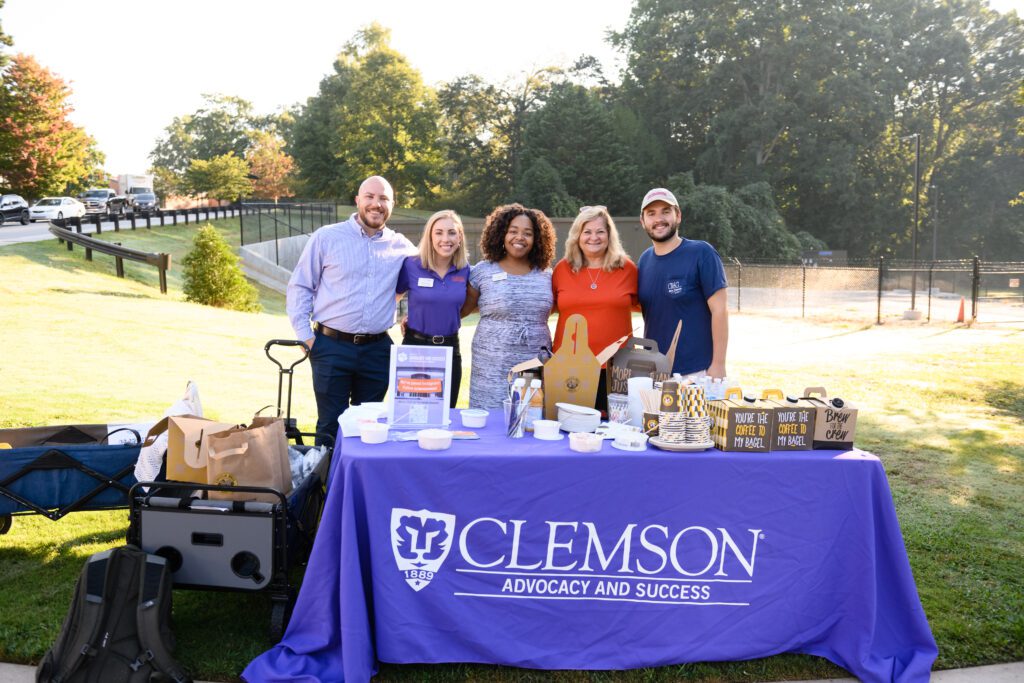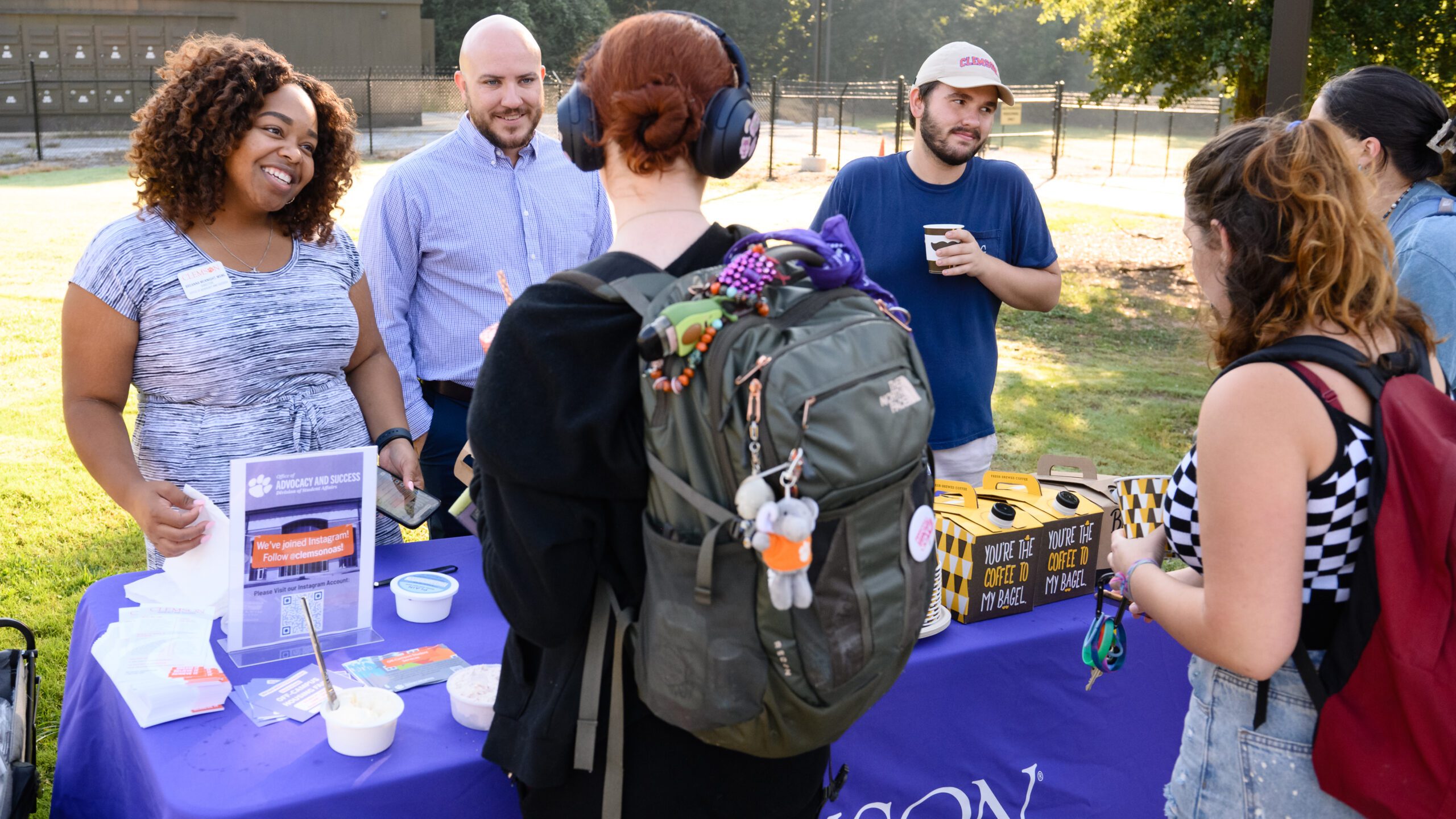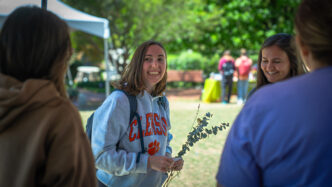Nearly three of every four Clemson University students reside outside of the main campus housing footprint. With enrollment surpassing 28,000 in Fall 2022, ensuring support resources are available for those looking to live off campus is paramount.
That’s where departments such as the Office of Advocacy and Success (OAS) play a key role. OAS works with students, families, faculty, staff and community partners to empower students to achieve academic and personal success. One of the critical ways the office does this is by building awareness of off-campus services.
“One of the challenges with off-campus students is they’re physically further from resources and we have less touchpoints with them,” said Makayla Stark, assistant director of OAS. “Ensuring students feel that connectedness and have access to support resources is important.”
OAS has taken several actions in recent years to create that sense of connectedness among students living off campus. Since Fall 2021, OAS has held at least one commuter appreciation event each semester. Staff set up in different commuter parking lots and offer food, coffee and information to students who are headed to and from classes.

Additionally, the office bolstered communication with off-campus property managers in the Clemson area. After conducting a survey in December 2021 to determine their needs as it related to students, Stark drafted a communication plan to eliminate any information gaps between property managers and the University. Enhanced communication included newsletters prepared at the beginning of each semester, a summer informational meeting with various stakeholders and an office presence at the annual off-campus housing fair.
Each of the opportunities equip both students and property managers with valuable resources, such as financial aid, ombuds resources for conflict resolution and parking/transportation options. The office continues to build on the off-campus housing website — which launched originally in 2010 — by exposing students to different options available in the local community.
“We have 61 properties and property managers that have engaged our department by attending the summer meeting or reading our newsletters,” Stark said. “We’ve had 25,000 users and nearly 260,000 page views on the website over the past year. We’re seeing an increase in user engagement and in turn it’s benefiting students.”
The continuing student on-campus housing signup process began in January and followed with room selection the following month. What resulted was a fairly large wait list. Breanna McKnight, director of OAS, said it can cause some anxiety for continuing students because off-campus properties often allow students to sign contracts in November or December of the year prior. She said the office helps students align expectations and explore their best options.
“Proximity and pricing are the most frequent concerns,” she said. “We want to ensure students have all the information they need to make decisions that are in their best interests or capabilities.”
Stark has continued to utilize different methods of engaging key community stakeholders as the off-campus housing market continues to grow. Some properties have incurred structural impacts, for example, and OAS has benefited from pre-established communication to ensure support for students in need.
“The University is invested in supporting the whole student — academically and personally,” she said. “We want to make sure our students are taken care of in all aspects of their experience. Our goal is to help them navigate needs and connect them to support and resources so they are able to find beneficial solutions.”
Editor’s Note: The Office of Advocacy and Success maintains a comprehensive list of resources on its website as a centralized hub of support for students who live off campus. For additional assistance, contact OAS at 864-656-0935.







